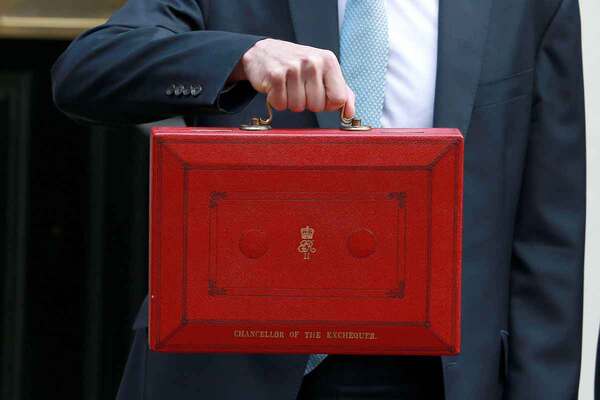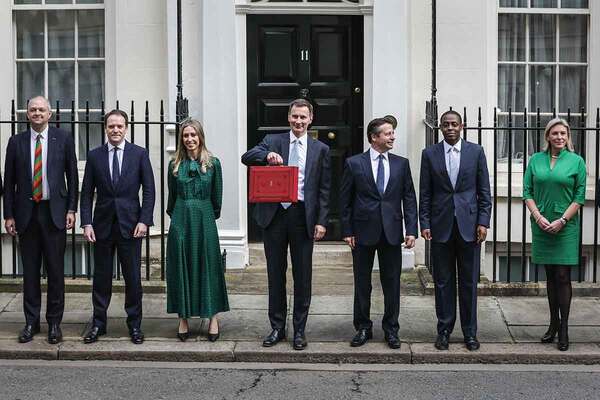You are viewing 1 of your 1 free articles
Spring Budget 2024: the ‘housing moment’ that never materialised
Inside Housing columnist Jules Birch analyses what the Spring Budget means for housing
It was meant to be a ‘housing moment’ that would make a homeownership-based pitch to younger voters. This was the line briefed repeatedly to the Sunday papers in the run-up to a Budget, which will probably be the last before the next election with the Conservatives 20 points behind in the opinion polls.
On new homes, chancellor Jeremy Hunt did have some minor funding announcements for specific schemes that seemed to stretch the definition of ‘levelling up’ to include Cambridge and Canary Wharf. He also boasted that “we are on track to deliver over one million homes in this parliament”, without mentioning the more ambitious manifesto target of 300,000 new homes a year.
The ‘moment’ was never going to be about social housing or homelessness. There was a small relaxation of the rules on using capital receipts by local authorities and a six-month extension to the Household Support Fund, but the Budget included none of the measures called for by Matt Downie, chief executive of Crisis, in his piece for Inside Housing last week.
Worse still, the Budget constrains the options for the Spending Review that will follow the election even further.
We already knew from the Autumn Statement that Mr Hunt had pencilled in a severe squeeze on day-to-day spending and a freeze on capital investment over the next five years. The Office for Budget Responsibility report that accompanied the Budget revealed that public sector net investment is planned to fall by billions of pounds more than in the autumn.
While nobody believes these ‘fictional’ spending plans will be followed by the next government, the prospects do not look exactly promising for the next Affordable Homes Programme.
The major surprise was that none of the policies to benefit first-time buyers that were touted as a “big offering” on housing in the Budget actually made it into Mr Hunt’s speech. There was no reform or abolition of stamp duty, no guarantee scheme for 99% mortgages and no revival of the Help to Buy.
“While nobody believes these ‘fictional’ spending plans will be followed by the next government, the prospects do not look exactly promising for the next Affordable Homes Programme”
Instead, the big changes were on tax, with the abolition of tax reliefs for landlords of holiday lets and investors in multiple properties and a cut in capital gains tax on property sales.
Not all of these are bad. The chancellor claimed with some justification that removing the tax advantage enjoyed by holiday lets should help boost the supply of long-term rentals in areas where there has been a rush into short-term lets.
But it’s far from clear why it took so long to correct a glaring imbalance in the tax treatment of property: tax relief was phased out for long-term landlords between 2017 and 2020 and for homeowners between 1994 and 2000.
Multiple dwellings relief is a tax relief from stamp duty that was introduced to encourage more institutional investment in the private rented sector. The chancellor said an external assessment found no evidence it was achieving this aim, although some property organisations dispute this.
The cut in capital gains tax (CGT) from 28% to 24% for property sales is much more controversial. Main homes are already exempt from CGT, so the cut will only benefit owners of more than one property, including rentals and second homes, and only apply to people who earn enough to pay the higher rate of tax (just over £50,000).
The Budget Red Book said this will “encourage landlords and second home owners to sell their properties, making more available for a variety of buyers including those looking to get on the housing ladder for the first time, while also raising revenue over the forecast period”.
What it did not say was that it could have achieved the same thing by announcing an increase in CGT from next year, encouraging multiple homeowners to sell now and potentially raising more in tax.
“Not mentioned either were the potentially devastating consequences for tenants of buy-to-let landlords that decide to cash in on their investment”
Tables in the Red Book forecasted that the measure will raise an extra £660m over the next two years as owners bring forward sales, but that the increased revenue will dwindle to nothing in the longer term. To put this in perspective, official statistics showed that in 2022-23, the 151,000 sales of residential property that were liable for CGT raised a total of £1.8bn. It sounds as though the Treasury is expecting around 20% more sales.
In his speech, the chancellor taunted Labour deputy leader Angela Rayner over her recent issues with CGT. He did not mention that beneficiaries of the change could include himself (as owner of seven rental flats in Southampton), his boss Rishi Sunak (owner of a house and flat in London, as well as a house in his Richmond constituency plus a penthouse apartment in California) and Conservative MPs who may have no need for an extra constituency home after the election.
Not mentioned either were the potentially devastating consequences for tenants of buy-to-let landlords that decide to cash in on their investment. Perhaps some of them will be able to afford to buy their home. If not, they will have no protection from eviction once landlords start to take advantage of the reduced tax rate that will apply in just three weeks’ time.
Evictions will mean more homelessness, which will mean increased costs for local authorities that are already creaking under the financial pressure of paying for temporary accommodation.
The chancellor could have chosen to direct some of the increased short-term revenue from CGT into lifting the subsidy cap on temporary accommodation, raising discretionary hosing payments or even building more social homes. Instead, the ‘housing moment’ turned out to be all about tax cuts.
Sign up for our daily newsletter
Already have an account? Click here to manage your newsletters













